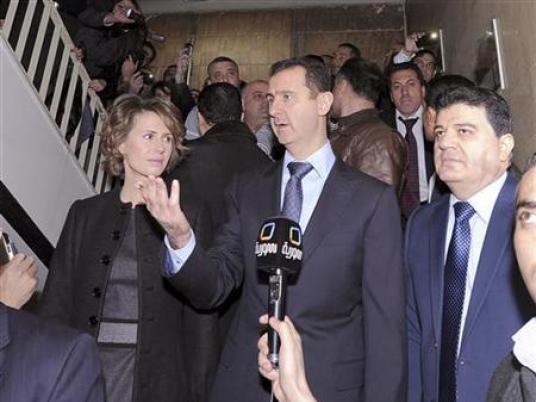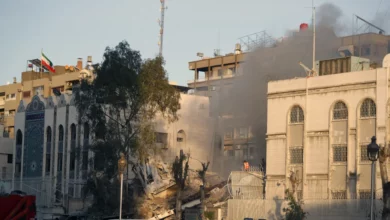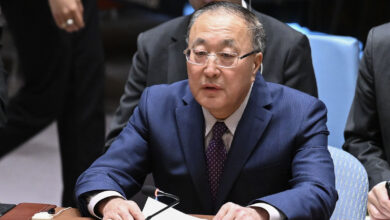
Syria's government and opposition, meeting face to face for the first time at a UN peace conference, angrily spelled out their hostility on Wednesday as world powers also restated contrasting views on the future of President Bashar al-Assad.
Opposition leader Ahmed Jarba accused Assad of war crimes that recalled Nazi Germany and demanded the Syrian government delegation at the one-day meeting in Switzerland immediately sign up to an international plan for a transition of power.
Syrian Foreign Minister Walid al-Moualem insisted Assad would not bow to outside demands and painted a graphic picture of "terrorist" rebel atrocities supported by Arab and Western states who back the opposition and were present in the room.
The United States and Russia, co-sponsors of the conference which UN officials hope can launch further negotiations at Geneva, also revealed their differences over Assad in speeches that began what will be a day of formal presentations.
United Nations Secretary-General Ban Ki-moon, who exchanged sharp words with Moualem when the Syrian minister spoke for more than three times the 10-minute limit Ban had set, opened proceedings at Montreux on Lake Geneva by calling for immediate access to humanitarian aid for areas under siege.
"After nearly three painful years of conflict and suffering in Syria, today is a day of fragile but real hope," Ban said, urging both sides to reach a comprehensive settlement based on the UN Geneva Communique, under which world powers called in 2012 for a transitional government to oversee change in Syria.
"Great challenges lie ahead but they are not insurmountable," he added.
Western powers and Russia have sought to set aside their own sharp differences over whether Assad must be forced to make way for an interim administration and have backed the conference as a way to stop the spread of communal and sectarian violence spreading across the region.
Moscow and Washington differ, however, over whether the 2012 accord – known as Geneva 1 – means that Assad must step down immediately. Western powers say that it does.
The new conference, known as Geneva 2, has raised no great expectations, particularly among Islamist rebels who have branded Western-backed opposition leaders as traitors for even agreeing to be in the same room as Assad's delegates.
Opposition, govt clash
Showing the opposition's determination to see through the demands of the rebels, Jarba called for the government delegation to turn against their president before negotiations start: "We agree completely with Geneva 1," he said.
"We want to make sure we have a partner in this room that goes from being a Bashar al-Assad delegation to a free delegation so that all executive powers are transferred from Bashar al-Assad," he added.
"My question is clear. Do we have such a partner?"
Turning around the government's accusations that the rebels have fostered al Qaeda and other militants, Jarba said it was Assad's forces which, by targeting mainstream opposition groups, had created the conditions for al Qaeda to thrive.
Moualem called on foreign powers to stop "supporting terrorism" and to lift sanctions against Damascus. And he insisted that Assad's future was not up for discussion:
"We came here as representatives of the Syrian people and state and everybody should know that nobody in this world has the right to withdraw the legitimacy of a president or government … other than the Syrians themselves," he said.
Iran sceptical
Russian Foreign Minister Sergei Lavrov repeated Moscow's opposition to "outside players" meddling. But he also said Iran – Assad's main foreign backer – should have a say as world powers tried to prevent the bloodshed spilling across borders.
US Secretary of State John Kerry insisted: "We see only one option, negotiating a transition government born by mutual consent. That means that Bashar al-Assad will not be part of that transition government.
"There is no way, no way possible, that a man who has led a brutal response to his own people can regain legitimacy to govern."
Iran was not represented. A last-minute invitation from Ban to attend was revoked on Monday after the Syrian opposition threatened to boycott the talks.
Iranian President Hasan Rouhani said that made it unlikely the conference could succeed: "Because of the lack of influential players in the meeting, I doubt about the Geneva 2 meeting's success in fighting against terrorism … and its ability to resolve the Syria crisis," Rouhani said.
"The Geneva 2 meeting has already failed without it even being started," he was quoted as saying by IRNA news agency – though he added he would be pleased if it did help bring peace.




